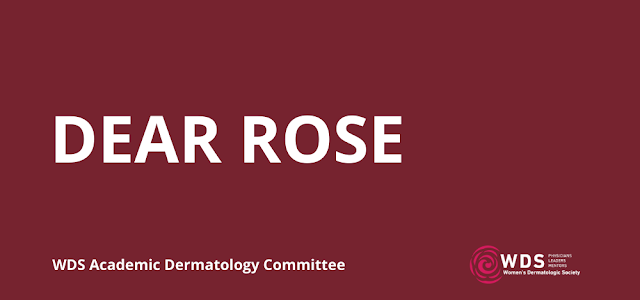Dear Rose: Does an Academic Career Provide Flexibility and Support for Working Parents?
By the WDS Academic Dermatology Committee
Question: Does an academic career provide flexibility and support for working parents?
Dear WDS Member,
Every academic center is unique in terms of their policies and flexibility for family planning and support for parents. An academic practice can provide opportunities for working parents. At the most basic level, academic careers are often salaried with benefits and paid leave time, but this can vary widely. Many private practices are primarily production based, so any leave time is unpaid.
Academic centers often offer daycare programs with lower rates and emergency childcare services when needed for a certain number of days of the year. Flexible spending accounts (FSA) are often offered to allow pre-tax dollars for dependent care. In addition to medical benefits, academic facilities have varying coverage options for family planning with respect to family planning benefits to cover fertility treatments and assisted reproductive technology. Similar benefits can also be offered at large, private non-academic institutions. Academic centers may also pay for some or all schooling or university for dependents, which is a huge benefit, should your child or spouse pursue that education. In addition, academic dermatology is often very encouraging of niche interests and specialized practices (https://www.sciencedirect.com/science/article/pii/S2352647516300144, International Journal of Women’s Dermatology, September 2016).
There is a wide variability to what is considered full-time at academic institutions; often, about 6 to 9 half-days are expected. Any benefits may be tied to your affiliation as part or full-time, another major family planning consideration. Academic institutions may offer you more flexibility in scaling forward or back your practice over the years—and protected academic time can often build a bit more flexibility into a career in academics.
Most importantly, I would recommend talking to faculty parents at the academic programs you are considering—they will know if the department is supportive or not and will be able to help guide you in the decision to join an institution. Academic dermatology can certainly provide improved flexibility and support, but this tends to be specific to the department and if the administration, specifically, the chairman/chairwoman of the department, are encouraging and accommodating of parents and families. Academic institutions also may offer time for conferences and continuing medical education in addition to often generous vacation time and sick leave. The culture of promotion at an academic institution should also be considered with a wide variety of how departments support faculty with young families and what “counts” toward promotion and tenure.
My further advice would be to consider your particular family situation—what exactly are you looking for from your job? Every family is unique and being better able to advocate and ask for what you need in a practice is essential.
Yours sincerely,
Rose
*Disclaimer: views and experiences shared in this article are of the individual author and do not necessarily reflect the views and experiences of WDS and all its members.



chemior-n Carol Collins programs
ReplyDeleteLink
tadartestda